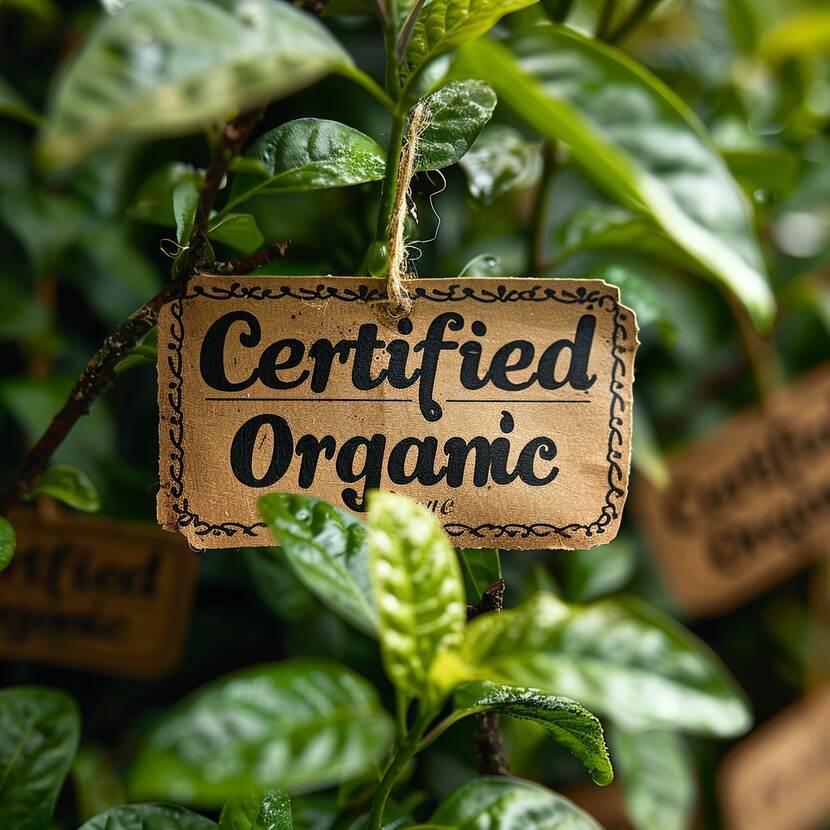Agricultural newsletter of Central Asia June 2024
In this edition we're taking you on a journey through the latest and greatest in agriculture from the Central Asian gem, including policy updates on organic food production in Kazakhstan, revolutionary greenhouse project in Uzbekistan and a landmark initiative on the use of biopesticides for locust management in Kyrgyzstan.

Kazakhstan's new era for organic food production

The Head of State has signed a law transforming organic food production in Kazakhstan. This visionary legislation is set to preserve natural resources, promote healthier diets, and elevate organic food market to new heights.
Key elements of the law for a robust organic food industry include:
- Modernized objectives and tasks for organic production and turnover.
- Organic food producers expanded with organic producers associations (ordinary partnerships).
- Streamlined transition terms for shifting to organic food production.
- Detailed production, tagging, and turnover standards.
- Participatory Guarantee Systems (PGS): voluntary, internally controlled systems ensuring top-quality organic products, aligned with international standards.

Kazakh PresidentpPromotes sustainable pasture use with new amendments
The Kazakh President has approved transformative amendments to the law on pasture use, setting the stage for combating land degradation and promoting sustainable practices. Here's what's new:
- The criterion of not using pastures has been tightened by increasing the number of farm animals required for grazing from 20% to 50% of the standard load on a pasture.
- Ban on land conversion: a firm prohibition on converting pastures into other agricultural land types, preserving precious grazing areas.
- Introduction of 'public pastures': strengthening the status of community grazing lands to support local rural dwellers.
Kazakhstan has 184 million hectares of pasturelands, a vast 84% of all agricultural land. With a 30-million-hectare deficit and 90% of village pastures facing degradation from overuse, these amendments are crucial.
Kazakhstan unveils over 60.3 million euro in agro-industrial projects
Since the start of the year, Kazakhstan has rolled out more than 50 groundbreaking investment projects in the agricultural sector, totaling over 60.3 mln Euro. These investments contribute to the development of agriculture, boosting production, enhancing product quality, creating jobs, and driving regional economic growth. Some of the projects which have been established include: A poultry farm producing 20 million eggs in the Turkestan Region, eight new enterprises in the Abay Region and more government in the Akmola Region.

Uzbekistan launches breakthrough agricultural project to boost fruit yields by 40%
Agrobank, one of Uzbekistan's leading banks, has launched an innovative Agro Invitro project in the Gallaaral district of Jizzak region. This initiative aims to grow high-yielding young plants using the most modern technologies. This is a truly revolutionary project for the agricultural sector in Uzbekistan and for the whole of Central Asia.
- A unique laboratory greenhouse complex spanning 20.4 hectares hosts 6,000 certified young plants of fruit, grape, and ornamental species, all adapted to local climate conditions.
- Utilizing fifth-generation technology, the greenhouse achieves up to 30% savings on heating and up to 70% on cooling, making it the fifth most energy-efficient greenhouse in the world.
- Young plants are irrigated with water purified from viruses and bacteria, promising yields several times higher than traditional methods.

Kyrgyzstan's farmers aim for record-breaking strawberry exports: 20 tons per hectare

Kyrgyzstan's domestic strawberry producers are gearing up to boost their average yield to an impressive 20 tons per hectare. This ambitious goal was revealed during a meeting with Bakyt Torobaev, Minister of Water Resources, Agriculture, and Processing Industry.
- The Minister convened with representatives from Aiyl Bank OJSC, RSK Bank, and top domestic producers-exporters to discuss the strategy for enhancing strawberry export potential.
- Deliberations included the current state of Kyrgyzstan's strawberry industry, global market trends, and identifying lucrative export markets.
- Critical issues such as financing and land provision for warehouse construction were voiced.
- A thorough comparison with competitors was conducted to understand market entry conditions.
- Farmers are setting their sights high, aiming to push strawberry exports to $1 billion in the coming years.
Kyrgyzstan introduces biopesticides to combat locusts
For the first time, in Kyrgyzstan demonstration trials are being carried out with biopesticides against locusts, a landmark initiative reported by the Food and Agriculture Organization of the United Nations (FAO). The country faces significant threats from Italian and Moroccan locusts, notorious for wreaking havoc on agriculture.
This innovative approach marks a significant step forward in sustainable agriculture, aiming to replace the annual treatment of 3.7 million hectares with chemical pesticides.
Why Biopesticides?
- Targeted action: the biopesticide, based on the fungus Metarhizium acridum, specifically targets locusts and grasshoppers without harming humans or the environment.
- Eco-friendly: unlike chemical pesticides, these biopesticides protect non-target organisms, preserving beneficial insects crucial for pollination and ecosystem support.
- Effective results: a three-day demonstration treated 20 hectares of infested fields. Remarkably, nearly 100% mortality was recorded after just 11 days.
- Strategic use: while slower-acting (4 to 21 days), they are ideal for preemptive control, preventing locust crises without collateral damage.
Investment gap analysis report reveals critical insights into Central Asia's water, agriculture, and energy sectors
The Central Asia Regional Economic Cooperation (CAREC) Institute has released a pivotal report on the current state and future investment needs of the region's critical sectors.
- The report explores the water, agriculture, and energy sectors across all five Central Asian countries.
- Special emphasis is placed on the region's climate and water challenges.
- The findings outline essential investment areas to address regional challenges and drive sustainable development.
- Promoting unified efforts among Central Asian countries to tackle shared issues effectively.
- Discover the full report for a detailed look at how strategic investments can transform Central Asia's future: Investment-Gap-Report.pdf (carecinstitute.org)
Stay tuned for more agricultural updates and developments from Central Asia in the next edition of the LNV Astana Newsletter!
Sources: Kazinform, ElDala (Kazakhstan), https://www.fertilizerdaily.ru, https://24.kg,
https://www .fao.org.